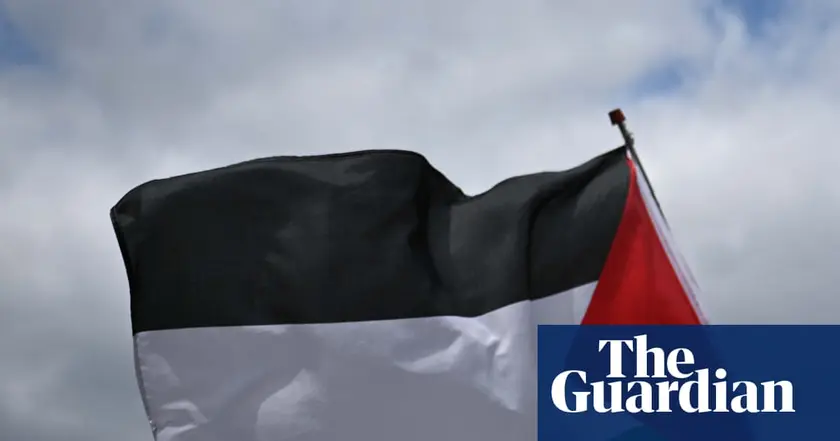T4K3.news
Three charged with supporting Palestine Action
Three individuals face charges under the Terrorism Act for public support of Palestine Action in London.
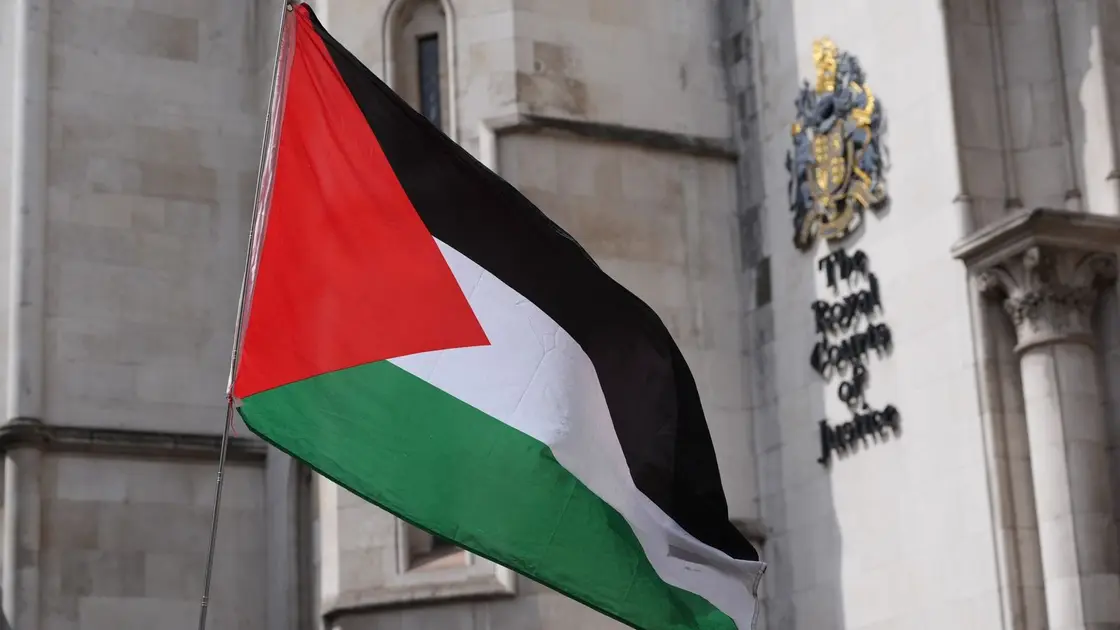
Three individuals face charges related to their support for the banned group Palestine Action.
Charges filed against trio supporting Palestine Action
Three individuals have been charged for showing support for Palestine Action, which has been designated a terrorist organization under UK law. The charges stem from a protest on July 5 in Westminster, where the Metropolitan Police arrested the suspects. Jeremy Shippam, 71, Judit Murray, 71, and Fiona Maclean, 53, face allegations of displaying signs that indicate support for a proscribed organization. They are set to appear in Westminster Magistrates' Court on September 16. The police have warned that anyone attending upcoming protests may face similar legal consequences. This incident is part of a broader crackdown following the group’s proscription, leading to over 220 arrests at protests throughout the UK.
Key Takeaways
"Anyone who displays public support for Palestine Action is committing an offence under the Terrorism Act."
Commander Dominic Murphy warns about the legal risks associated with supporting the banned group.
"Our role is to enforce the law where we suspect offences to have been committed."
Vicki Evans, senior coordinator for Counter Terrorism Policing, outlines the enforcement approach.
"This legislation does not interfere with the right to protest in support of the Palestinian cause."
Vicki Evans clarifies that supporting Palestine itself is not illegal, but supporting the group is.
"The group had a long history of unacceptable criminal damage."
Home Secretary Yvette Cooper explains the rationale behind the proscription of Palestine Action.
The charges against these three individuals reflect escalating tensions around freedom of expression and government responses to dissent. Amid growing concerns over public safety and national security, police have implemented strict measures against protests linked to Palestine Action. With planned demonstrations expected to attract significant crowds, the implications for civil liberties and the government's approach to protest law could become a topic of heated public debate. The situation illustrates a delicate balancing act between enforcing the law and respecting democratic rights.
Highlights
- Engaging in peaceful protest has become a legal minefield.
- Public support for banned groups risks serious criminal repercussions.
- The ban on Palestine Action blurs lines between protest rights and national security.
- Legal consequences loom over those who support Palestine Action.
Legal concerns surrounding support for Palestine Action
The arrests and charges against individuals supporting Palestine Action highlight potential legal risks under the Terrorism Act. Such measures may raise concerns about the implications for freedom of expression and public dissent.
The ongoing developments could shape future discussions on protest rights and national security policies.
Enjoyed this? Let your friends know!
Related News
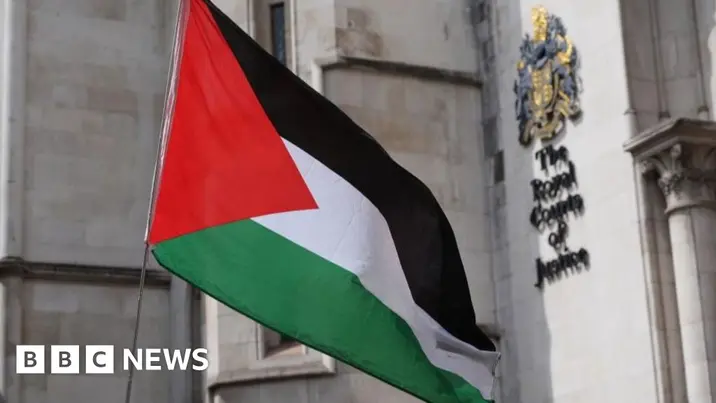
Three charged with supporting proscribed group
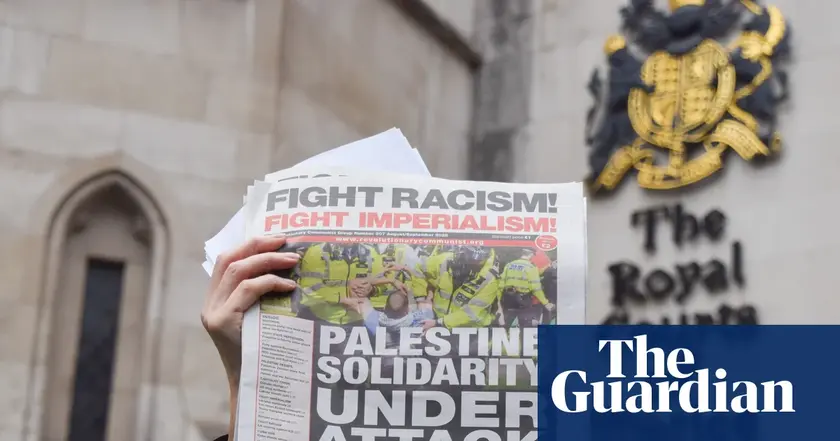
Charges filed against activists supporting Palestine Action
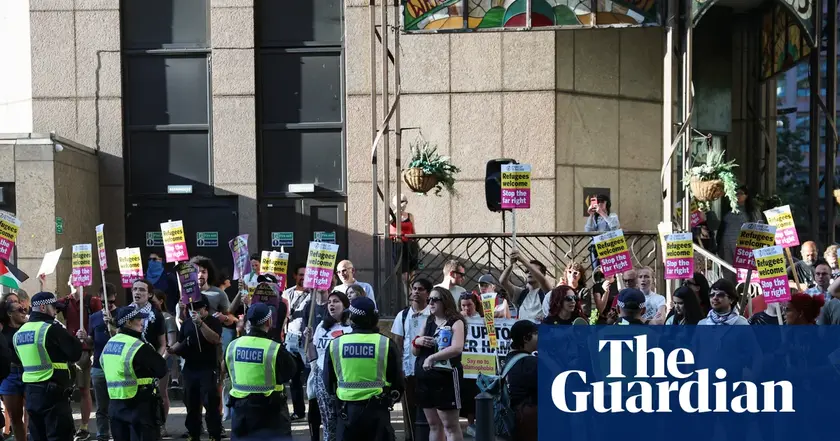
Police deploy 3000 riot officers for weekend protests
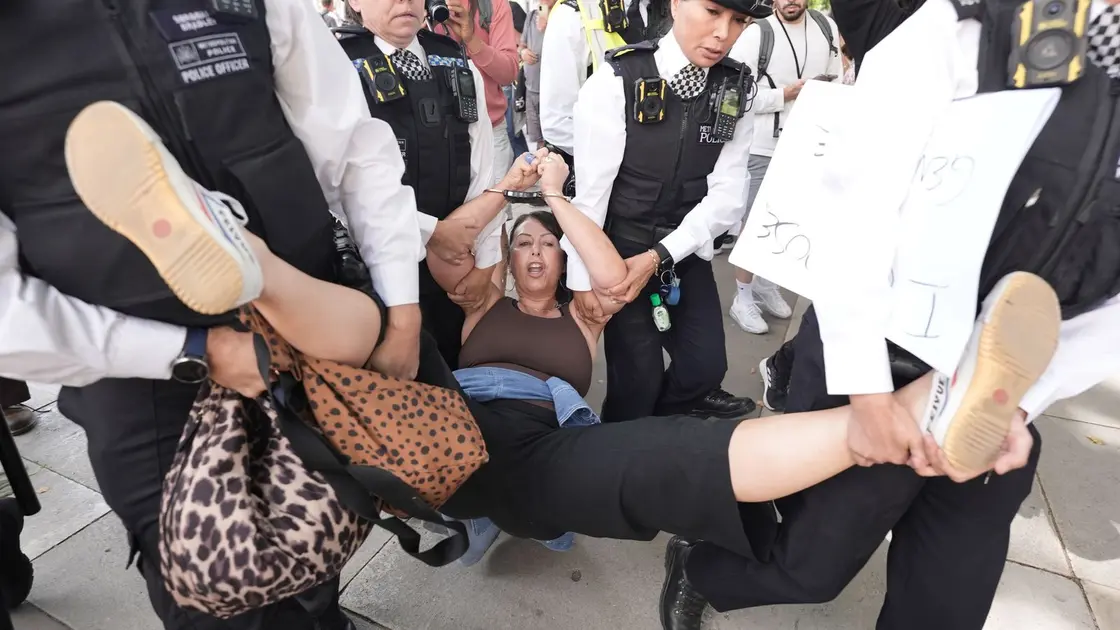
Arrests at London Palestine Action Protest After Proscription
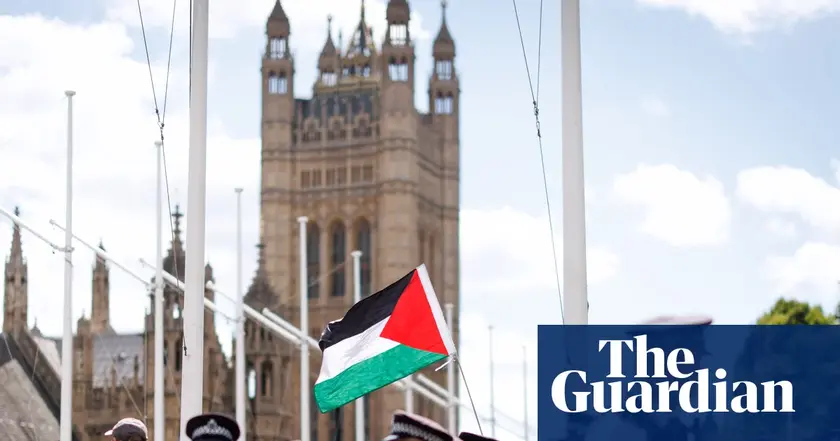
London protests after Palestine Action ban

Kneecap banned from Hungary due to alleged antisemitism
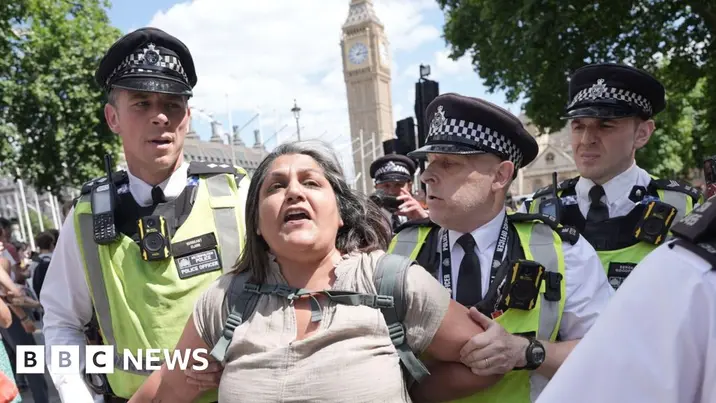
London protest on Palestine Action ends with dozens arrested
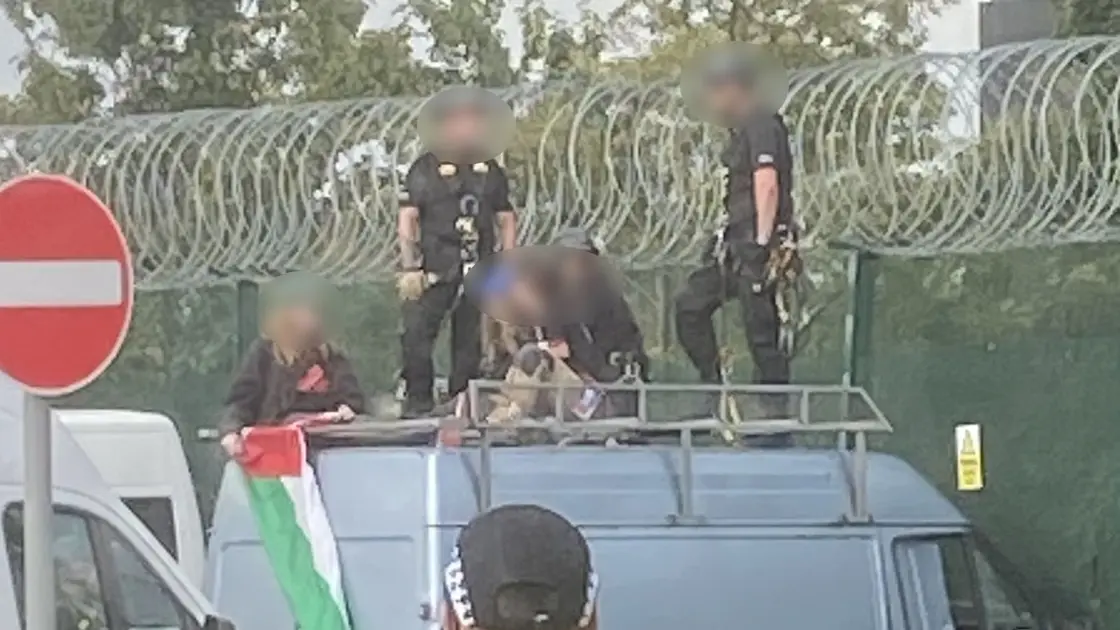
Three women charged under Terrorism Act after Edinburgh incident
